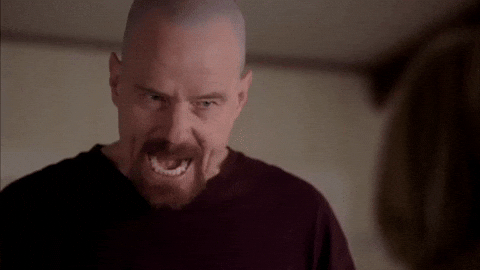Hello, hello. How are we doing? Welcome to the first Substack of the new year. I’d have been here sooner, but I was busy planning a wedding, job hunting, and rebuilding my mental health after escaping perhaps the most toxic workplace of my life.
Anyway, I’ve been dipping back into what I call ‘gross’ literature lately, specifically written by women, and I have THOUGHTS. Indulge me, will you?
There’s a shift happening in literature, one that might make you a little uncomfortable—but that's the point. Female protagonists are embracing their messiness, their flaws, and their taboos in ways that demand attention.
Gone are the days of perfect, clean-cut women who fit into the mould of what society deems acceptable. Enter the "gross feminine" era, where the likes of Eliza Clark's Boy Parts introduce readers to characters like Irina Sturges, who is unapologetically terrible—and, in a strange way, captivating.
Irina is manipulative, selfish, sadistic, and maybe even a murderer (no spoilers here). She is the complete opposite of your Jane Eyres, Elizabeth Bennets, Hermione Grangers and so on, i.e. the female protagonists we’ve been conditioned to admire and emulate.
…And yet, she commands your attention. Sometimes, you’ll even find yourself agreeing with her rage-filled thoughts and actions. Excusing them, maybe.
This trend isn’t limited to one book; it’s a broader cultural moment. Think Ottessa Moshfegh’s My Year of Rest and Relaxation, Sheena Patel’s I’m A Fan, and Lisa Taddeo’s Animal. These are books that take on uncomfortable subjects, tackling the darkest corners of the human psyche, especially when it comes to women who break every rule of what we expect from a lead.
Irina Sturges doesn’t fit the mould of a “strong female character.” She’s quite the opposite. The new crop of female protagonists are not here to make us feel empowered in the traditional sense. They’re here to make us question what we expect from women—and from men—especially when those expectations are wrapped up in tidy packages of heroism or virtue.
In this ‘gross’ new world, you’re not meant to root for the main character with zero reservations. You’re supposed to be uncomfortable, conflicted, and even repulsed at times. The aim is not empathy, but exploration of the darker, murkier side of femininity—of humanity. The side we often ignore or suppress in the name of what is considered feminine, human, and natural.
This brings us to the rise of the “unlikeable” female character. While traditional women in literature have often been depicted as petite, polite, and ultimately passive—relegated to love interests with no true agency—the current wave of stories is shattering those tropes.
These women are grotesque in both the literal and metaphorical sense. Think of My Year of Rest and Relaxation, where the unnamed narrator lives in a decay of rotting food and filth. Or The Pisces, where Lucy’s emotions spiral out of control and push her to the edge of violent acts. These are women whose existence is anything but clean or comforting. They are not squeaky-clean homemakers looking for a husband; they’re real, distorted images revolting against outdated notions of what women should be.
And that’s what makes them so compelling. The grotesque female character is unsettling because it challenges societal standards for women’s behaviour and appearance. These characters are often physically unkempt, emotionally extreme, and prone to violent outbursts when pushed too far. The very rawness of these women’s narratives lays bare the hidden complexity of female identity, and in doing so, it leaves readers with an unsettling question: What happens if women stop playing by the rules?
Take Irina from Boy Parts as an example. Beneath her calculated, pristine, beautiful exterior, she’s a nightmare—cold, cruel, and consumed with a sadism-laced nihilism. She doesn’t care about the consequences of her actions really, nor does she seek validation from others. She finds people who do seek validation or friendship pathetic, and off-putting. Case in point: her long-suffering ‘best friend’.
When she expresses her hatred for men, or discusses her violent tendencies, there’s no apology. It’s a stark departure from the “strong female characters” of the past, who were tough yet still palatable. Irina is not palatable. She’s an explosion of chaos, and that’s what makes her fascinating. As she declares, “The things you do, the things you are; it’s all nothing.” Her philosophy is bleak, her actions violent, and yet, somehow, we can’t stop reading.
This is the era of the unlikeable female character, and it's a necessary evolution in the portrayal of women in literature. It’s not about making women palatable or likeable; it’s about making them real—raw, flawed, and terrifying in their own right. They’re not threatened by men, by society: they are the threat.
These characters show us what happens when women let go of inhibition and take up space without worrying about whether we like them. And that’s exactly why we need them.
In embracing these women in their villain era, we’re finally seeing a more complex picture of female identity—one that’s messy, grotesque, and deeply human. It’s a time for breaking taboos, and honestly? I’m here for it. And part of me thinks Jane Austen would be too.
Have you read or watched any ‘gross’ women recently? Tell me all about it. I need to know.






'The Bell Jar' by Slyvia Plath! So unlike any traditional female protagonist. Esther is in high society and yet, she does not enjoy it, does not give into it, does not fake it and falls into a depression. Esther isn't 'villainous' like Irina Sturges haha but I think Esther fits into what you're saying too.
Brings to mind Bella in Poor Things, being unapologetically herself always demanding and questioning. Loved this Kelly!